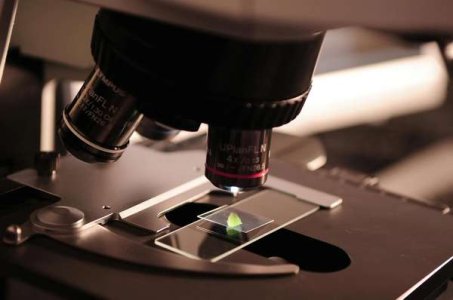Experts Reveal the Shocking Dangers of Tinkering with 'Mirror Life' - Are We Ignoring the Ultimate Risk?
By
Veronica E.
- Replies 0
In an age where scientific breakthroughs are celebrated and the boundaries of knowledge are pushed further each day, a group of 38 scientists from nine countries has raised a warning that could make us all pause and reflect—quite literally.
The subject at hand is the concept of "mirror life," a term that may sound like it’s straight out of a science fiction novel, but one that could have very real and far-reaching consequences.
Here at The GrayVine, we value the wisdom that comes with life experience, and we understand the importance of proceeding cautiously when it comes to new technologies.
Let’s explore what these scientists are warning us about and why it’s something that matters to us all.

Understanding Mirror Life
To appreciate the gravity of the situation, we must first understand what "mirror life" entails.
In the natural world, biological molecules exhibit a specific orientation, known as chirality or "handedness."
Just as your left hand is a non-superimposable mirror image of your right hand, molecules can exist in two forms that are mirror images of each other.
All known life forms on Earth are made up of "left-handed" amino acids and "right-handed" sugars.

Mirror life, however, would consist of the opposite: "right-handed" amino acids and "left-handed" sugars.
This reversal of molecular structure is not just a trivial switch; it represents a fundamental shift from the life we know.
The Unprecedented Risks
The scientists' report, published in the journal Science, serves as a wake-up call about the potential dangers of creating synthetic organisms with reversed molecular structures.
While the technology to create mirror bacteria may still be a decade or more away, the risks are too significant to ignore, they argue.
One of the most alarming concerns is the potential for mirror bacteria to bypass our immune systems. Our bodies are finely tuned to recognize and attack invaders based on their molecular shapes.
If these shapes are mirrored, our immune defenses could be rendered ineffective, leaving us vulnerable to infections we have no way to combat.
The report paints a dire picture: a mirror bacterium could act as an invasive species, causing widespread and lethal infections across numerous ecosystems, affecting plants, animals, and humans alike.
The possibility of such a pathogen spreading unchecked could have catastrophic consequences.
The Call for Caution
These scientists aren’t just sounding the alarm—they’re calling for action. They recommend that research aimed at creating mirror bacteria should only proceed if compelling evidence shows that it would not pose extraordinary dangers.
Funding for such research should be withheld to prevent inadvertently opening Pandora’s box.
This call for caution resonates with the principle of a "precautionary approach" that many of us in the The GrayVine community have learned to value over the years.
It’s the idea that sometimes, being cautious is wiser than rushing forward—especially when the stakes are as high as they are with mirror life.
The Ethical Dilemma
The debate around mirror life research also raises broader ethical questions. How far should we go in our quest for knowledge? What responsibilities do we have to future generations when it comes to the technologies we develop today?
These are questions that don’t have easy answers but are crucial to consider as we navigate the complexities of modern science.
As we ponder the implications of mirror life research, it’s essential to engage in informed discussions and consider the long-term impacts of our scientific endeavors. The wisdom that comes with experience teaches us that progress and innovation must be balanced with prudence and responsibility.

We invite you to join the conversation. What are your thoughts on the potential risks of mirror life? How should we approach such groundbreaking scientific research with caution and responsibility? Share your insights and experiences in the comments below. We’d love to hear your perspective!
The subject at hand is the concept of "mirror life," a term that may sound like it’s straight out of a science fiction novel, but one that could have very real and far-reaching consequences.
Here at The GrayVine, we value the wisdom that comes with life experience, and we understand the importance of proceeding cautiously when it comes to new technologies.
Let’s explore what these scientists are warning us about and why it’s something that matters to us all.

Scientists raise concerns about the potential risks of creating synthetic mirror bacteria, which could have far-reaching consequences for ecosystems. Image Source: Pexels / Pixabay.
Understanding Mirror Life
To appreciate the gravity of the situation, we must first understand what "mirror life" entails.
In the natural world, biological molecules exhibit a specific orientation, known as chirality or "handedness."
All known life forms on Earth are made up of "left-handed" amino acids and "right-handed" sugars.

Just like our hands, life itself has a mirrored counterpart. Image Source: Pexels / cottonbro studio.
This reversal of molecular structure is not just a trivial switch; it represents a fundamental shift from the life we know.
The Unprecedented Risks
The scientists' report, published in the journal Science, serves as a wake-up call about the potential dangers of creating synthetic organisms with reversed molecular structures.
While the technology to create mirror bacteria may still be a decade or more away, the risks are too significant to ignore, they argue.
One of the most alarming concerns is the potential for mirror bacteria to bypass our immune systems. Our bodies are finely tuned to recognize and attack invaders based on their molecular shapes.
If these shapes are mirrored, our immune defenses could be rendered ineffective, leaving us vulnerable to infections we have no way to combat.
The report paints a dire picture: a mirror bacterium could act as an invasive species, causing widespread and lethal infections across numerous ecosystems, affecting plants, animals, and humans alike.
The possibility of such a pathogen spreading unchecked could have catastrophic consequences.
The Call for Caution
These scientists aren’t just sounding the alarm—they’re calling for action. They recommend that research aimed at creating mirror bacteria should only proceed if compelling evidence shows that it would not pose extraordinary dangers.
Funding for such research should be withheld to prevent inadvertently opening Pandora’s box.
This call for caution resonates with the principle of a "precautionary approach" that many of us in the The GrayVine community have learned to value over the years.
It’s the idea that sometimes, being cautious is wiser than rushing forward—especially when the stakes are as high as they are with mirror life.
The debate around mirror life research also raises broader ethical questions. How far should we go in our quest for knowledge? What responsibilities do we have to future generations when it comes to the technologies we develop today?
These are questions that don’t have easy answers but are crucial to consider as we navigate the complexities of modern science.
As we ponder the implications of mirror life research, it’s essential to engage in informed discussions and consider the long-term impacts of our scientific endeavors. The wisdom that comes with experience teaches us that progress and innovation must be balanced with prudence and responsibility.
Key Takeaways
- A group of 38 scientists from nine countries has raised concerns about the potential risks associated with creating synthetic mirror bacteria.
- The researchers highlighted that the science required to create these mirror-image organisms is more than a decade away, but the potential risks are considered "unprecedented" and "overlooked."
- The scientists recommend that, unless evidence emerges to the contrary, research aimed at creating mirror bacteria should not be permitted, and funding for such work should be withheld.
- The report outlines that mirror bacteria could potentially bypass immune system recognition, posing a threat of pervasive, lethal infections that could affect numerous ecosystems, including humans.
We invite you to join the conversation. What are your thoughts on the potential risks of mirror life? How should we approach such groundbreaking scientific research with caution and responsibility? Share your insights and experiences in the comments below. We’d love to hear your perspective!






